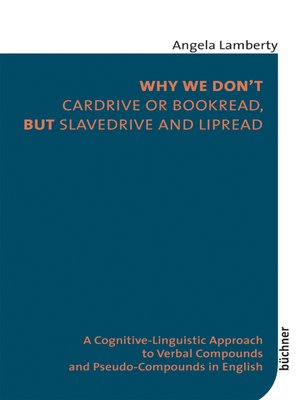Why We Don't Cardrive or Bookread, but Slavedrive and Lipread
ebook ∣ A Cognitive-Linguistic Approach to Verbal Compounds and Pseudo-Compounds in English
By Angela Lamberty

Sign up to save your library
With an OverDrive account, you can save your favorite libraries for at-a-glance information about availability. Find out more about OverDrive accounts.
Find this title in Libby, the library reading app by OverDrive.



Search for a digital library with this title
Title found at these libraries:
| Library Name | Distance |
|---|---|
| Loading... |
Compounding is a highly productive word-formation pattern in the English language. In light of this, it is counterintuitive that English lacks a general word-formation rule for genuine verbal compounds and those appear to be very rare. But for what reason does verbal composition disqualify as a productive word-formation pattern in English? How are verbal pseudo-compounds processed and what does this imply about the way in which newly coined genuine verbal compounds would be processed? What are the factors that determine and influence the processing of English verbal compounds and pseudo-compounds?
This book adopts a fresh cognitive linguistic perspective on verbal compounding and investigates the above questions with the help of experimental methods. It offers a novel and cognitive linguistically based model of mental access to verbal compounds and tries to complement the prevailing structural and typological approaches by insights on language processing.







